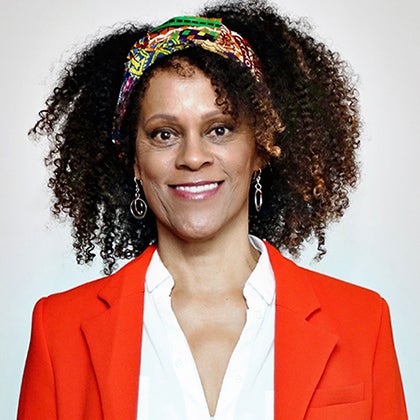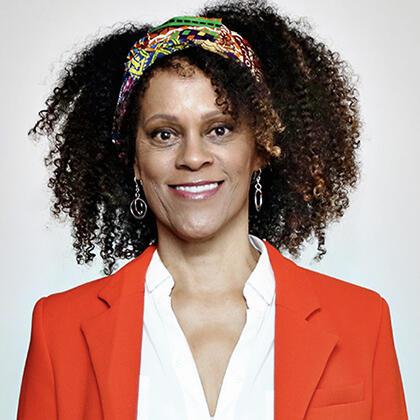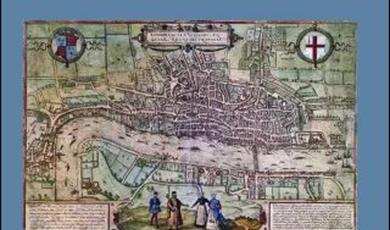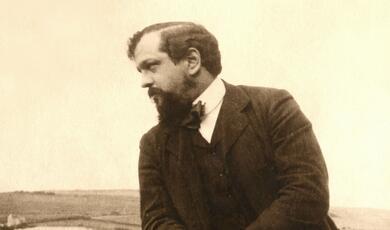The Stories We Make Up & The Stories That Make Us
Share
- Details
- Text
- Audio
- Downloads
- Extra Reading
In a sense, we are all storytellers, from the conversations we hold every day – the gossip, anecdotes, fabrications, memories - to the stories told by professional fiction writers who craft structured narratives designed to be communicated to a wider public.
The telling of stories is not separate to our lives, but intrinsic to who we are as humans. We understand the world through stories. We are born into our parents’ stories and into the stories of our country, this world, the universe. The recording of history is a story constructed from the past from particular perspectives, while our personal issues and viewpoints inform how we remember and recount our personal histories. And when we imagine the future, are we not creating fiction, often fantasy fiction? Stories are constructed about who we are before we are born and for the duration of our time here on earth. Sometimes these stories are limiting and reductive. Sometimes they are simply propaganda. Sometimes they give us advantages and smooth our path through whatever it is we want to pursue and achieve.
The stories we believe to be true of ourselves as individuals might determine the choices we make that influence our trajectory through life. The stories we tell ourselves about other people might determine who we let into our social circles and other spheres, whom we listen to and respect in the hierarchy of status and importance. Politicians and the media are among the most powerful story-spinners in the world – shaping the opinions and lives of many millions, entire nations, the world. Writers of fictions understand that for a protagonist to be interesting they need to have agency, likewise with all of us in the real world. To gain control of the story and communicate it with finesse and an understanding of human complexity is an act of great agency and sometimes resistance.
Many decades ago, as a young graduate from drama school, I was presented with a stark choice – either to shape my story myself, through writing, or to feel aggrieved at the detrimental narratives circulating about people like me in Britain at that time. I chose the latter, and in this talk I will talk about how story-making is a conscious act of speaking ourselves into being - drawing on literature, theatre and the visual arts.
Download Text
The Stories We Make Up and the Stories that Make Us
Bernardine Evaristo, Writer and Professor of Creative Writing
25 June 2024
In this lecture I discuss the following:
- How stories shape our lives and the ways in which we utilize narratives to make sense of our experiences and the societies around us. I talk about how story is embedded in us from before we were born in terms of our genetic and ancestral inheritances and how we inherit the stories of our parents and their stories for us.
- The notion of stories as an art form, as literature and oral history expands into the expansive realm of stories being intrinsic to who we are as humans: how we communicate through conversation - gossip, anecdotes, memories; how we preserve traditions and values, mirror and transform, convey cultures and religions through narrative texts, parables and fables, psalms, poems, songs, and sermons.
- In this context, stories are how we understand and process our personal identities, communities, cultures, nations, the world, the universe.
- Storytelling is used to disseminate information, including marketing, because dry facts and data are made interesting when attached to a narrative. A narrative features, for example, characters, whether real-life people or fictional people, and whether animal or inanimate objects personified. Characters engage not only our minds and imaginations but our feelings which means we can reach people at a deeper level.
- In this vein, some of the most influential members of the political class understand how story can play on people's emotions. Demagogues are adept at creating an Us versus Them scenario, or story, which scapegoats others and persuades people to abandon logic, rationality and even hard evidence against whatever they are proclaiming as the truth.
- History, broken down into 'his story' by is presented as the unassailable truth of the past, rather than one version of it through chosen timelines and particular perspectives.
- I also talk about the idea of his-story by earlier feminists, along with its gender biases, and how women have been marginalized by the history of the patriarchy; and we still struggle for feminism to be embedded in society when women have not yet achieved parity, with particular reference to the arts.
- I mention a recent newspaper article about a high-profile woman who is a self-declared feminist. The columnist, herself female, expressed admiration for this woman because her feminism was quiet. The journalist compared this therefore muted woman to another high-profile feminist, who was anything but quiet about it. In her opinion, one was a good feminist, the other bad - because she spoke up.
- I move onto women writers who are most likely to write stories about women but there is a lot of ground to make up.
- Stories affect large demographics, such as the storification of African Americans over centuries, and how artists are still having to negotiate the dishonest and demeaning stereotypes designed to keep them down. Toni Morrison once said that 'definitions belong to the definer not the defined.' Similarly, in Britain, we writers of the African diaspora are writing into a society where we have historically been either ignored, peripheralized or defined by others.
- In this context, we contribute our own perspectives to existing stories, and invent our own, such as the first major memorial to the transatlantic slave trade. I focus on the sculpture installation by the artist, Zak Ove.
- When we construct new narratives, sometimes addressing tired, old cliches, we are all in a sense, revisionists for the greater good, especially when we’ve been defiled, defamed, and prejudged due to stereotyping. When we are considered homogenous, we lose not only our humanity but also our individuality.
- The representation of Arabs in Hollywood films is an example of the depth and breadth of damaging stereotyping. I refer to the now deceased American scholar, Jack Shaheen, who published the book, Reel Bad Arabs, How Hollywood Vilifies a People (2006) which was based on thirty years of research into the representation of Arab people on film, from the early days of the late nineteenth century to the year 2000.
- When we dehumanize and demonize a people because of their culture and ethnicity, whether Jewish, Asian, African, Native American and the indigenous throughout the world, through the stories we communicate about them, we are shutting ourselves off from their relatability as human beings and desensitizing ourselves to their realities. In short, we lose compassion for them, even when they are massacred in their thousands or millions, which is clear morally wrong. When we reduce peoples, for example, 1.2 billion Africans, to a few reductive and quite frankly ridiculous characteristics, we are stripping them of the complex layers of qualities we all share as human beings.
- Jeffrey Gibson is the first Indigenous American artist to represent the US with a solo show at Venice Biennale, changing the story of America with his Indigenous, queer-inspired art. I talk about other firsts and what this means in terms of the stories we have about success, such as Rebecca Salter’s appointment as the first woman president of the Royal Academy of Arts in 250 years, which led to the first female artists being awarded a solo show there, also in 250 years.
- Next I turn my attention to the media and news stories and how they shape public opinion and damage entire demographics. I draw on the recent disparagement of trans people, and how the South African non-binary visual activist, Zanele Muholi, with a current major retrospective at Tate Modern, is offering a beautiful antidote through their focus on LGBTQIA+ people.
- When negative stories are continuously pumped out about particular communities - in the absence of effective counteracting influences - the negativity is absorbed into the bloodstream, where they risk being distilled into bigoted sentiments on a grand scale: the mass consciousness effectively brainwashed.
- Looking further at misrepresentation and falsehood in the media, I talk about how this is an everyday occurrence for people in the public eye such as politicians. I also draw on social media and the fact that while it empowers people to campaign and affect positive change, it can also be deeply problematic.
- Stories are part of how we communicate interpersonally, and the vehicle through which we talk about ourselves, our relationships, how we create anecdotes, talk about other people. The stories we tell ourselves about ourselves, and about others, might determine whom we fall in love with, what kinds of people with whom we feel an affinity, how we regard others and what kinds of people are allowed into our social circles. Story operates throughout every aspect of our lives.
- I talk personally about how I was personally contextualized as soon as I was born by negative and limiting stories about what it means to be a person of colour, a woman, working class. And how I have counteracted this through my creative exploration and consequently, have never felt crushed by a society that years ago, regarded me, British born and raised, as not quite belonging.
- The UK's African diasporans are undergoing a very fertile period in the business of storytelling through books, plays, screen drama. More work is being published and celebrated than ever before in our history. As stories will always be a part of human life, it is essential that we create the space and support those who present talented counter-narratives that challenge orthodoxies imposed upon us and which aim to keep us in the boxes that limit our potential. These are interesting times; long may they continue.
© Professor Bernardine Evaristo, 2024
This event was on Tue, 25 Jun 2024
Support Gresham
Gresham College has offered an outstanding education to the public free of charge for over 400 years. Today, Gresham College plays an important role in fostering a love of learning and a greater understanding of ourselves and the world around us. Your donation will help to widen our reach and to broaden our audience, allowing more people to benefit from a high-quality education from some of the brightest minds.


 Login
Login







